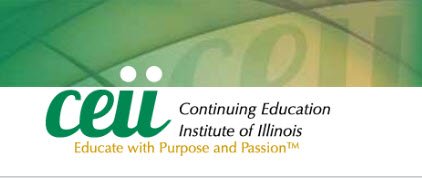
- Description
- Objectives
- Outline
- Materials
- Certification
- System Requirements
- Watch a Demo
Medical Billing is listed as one of the fastest growing professions in allied health. The medical industry is experiencing a tremendous demand for individuals with knowledge of medical office operations, which includes diagnostic and procedural insurance forms processing. Our Medical Billing Specialist program can help you get started in this exciting career.
Medical Terminology
Quickly master the basics of medical terminology and begin speaking and writing terms almost immediately! This course omits time-consuming, nonessential information and helps you build a working medical vocabulary of the most frequently encountered suffixes, prefixes, and word roots. Medical terms are introduced in the context of human anatomy and physiology to help you understand exactly what they mean, and case studies, vignettes, and activities demonstrate how medical terms are used in practice.
Prerequisite(s): None
Medical Billing
Medical Billing is listed as one of the fastest growing professions in allied health. The medical industry is experiencing a tremendous demand for individuals with knowledge of medical office operations, which includes diagnostic and procedural insurance forms processing. This Medical Billing course covers all the plans that are most commonly encountered in clinics and physicians' offices. An emphasis on the role of the medical insurance specialist prepares you for success in the workplace, including areas such as diagnostic coding, procedural coding, Medicare, HIPAA and bill collection strategies. Our Medical Billing course will give you the skills you need to be competitive in the healthcare marketplace.
Prerequisite(s): None
** Course Subject to Change.
Medical Terminology
After completing this course, you should be able to:
- Identify how to gain and understand the basic word structure in medical terminology
- Recognize how to relate the medical terms to the structure and function of the human body
- Identify body systems, body cavities, and planes of the body
- Define words by dividing them into their component parts
- Recall the terminology used with medical specialists and case reports
Medical Billing
After completing this course, you should be able to:
- Identify the core elements of health insurance
- List features of the different coding systems and their documentation
- Define the features of processing claim forms both electronic and paper
- Recall the basics of fee and insurance collection
- Recognize the features of various health care payer types
Medical Terminology
Medical Terminology Module 1
Basic Word Structure
- Word Analysis
- Combining Forms
- Suffixes & Prefixes
- Pronunciation of Terms
- Exercises & Applications
Medical Terminology Module 2
Organization of the Body
- Body Systems and Cavities
- Divisions of the Back
- Planes of the Body
- Pronunciation of Terms
- Exercises & Applications
Medical Terminology Module 3
Suffixes
- Introduction to Suffixes
- Suffixes and Terminology
- Diagnostic & Procedural Suffixes
- Pronunciation of Terms
- Exercises & Applications
Medical Terminology Module 4
Prefixes
- Combining Forms & Prefixes
- Prefixes and Terminology
- Define Common Prefixes
- Pronunciation of Terms
- Exercises & Applications
Medical Terminology Module 5
Medical Specialists & Case Reports
- Medical Specialists
- Combining Forms & Vocabulary
- Case Reports & Terminology
- Pronunciation of Terms
- Exercises & Applications
Medical Terminology Module 6
Body Systems – Part 1
- Cardiovascular System
- Digestive System
- Endocrine System
- Female Reproductive System
- Lymphatic System
Medical Terminology Module 7
Body Systems – Part 2
- Male Reproductive System
- Musculoskeletal System
- Nervous System
- Respiratory System
- Skin & Sense Organs
- Urinary System
**Outlines are subject to change, as courses and materials are updated.**
Medical Billing
**Outlines are subject to change, as courses and materials are updated.**
Ed4Career is committed to being both environmentally conscious and making it easier for you to study! We’re making your education mobile! All of our textbooks are now provided as eTextbooks*. You can access them on your laptop, tablet, or mobile device and can study anytime, anywhere.
The move away from physical books to eTextbooks means you get the latest, most up-to-date version available. This also makes your training more accessible, so you can study anywhere you have your phone or tablet. The best part is that all materials are included in your training cost so there are NO extra fees for books!**
*A few courses still have physical materials.
Medical Billing
Upon successful completion of our Medical Billing course, students will be prepared for an entry-level position doing medical billing in a medical office setting and will be prepared to sit for the Med-Certification exam to become a Certified Medical Billing Specialist (CBS) or the AAPC certification exam to become a Certified Professional Biller (CPB).
** Certification exams are not included in the cost of the course.**
Internet Connection
- Broadband or High-Speed - DSL, Cable, and Wireless Connections
*Dial-Up internet connections will result in a diminished online experience. Classroom pages may load slowly and viewing large audio and video files may not be possible.
Hardware Requirements
- Processor - 2GHz Processor or Higher
- Memory - 1 GB RAM Minimum Recommended
PC Software Requirements
- Operating Systems - Windows 7 or higher
- Microsoft Office 2013 or higher. Also, you could use a general Word Processing application to save and open Microsoft Office formats (.doc, .docx, .xls, .xlsx, .ppt, .pptx)
- Internet Browsers - Google Chrome is highly recommended
- Cookies MUST be enabled
- Pop-ups MUST be allowed (Pop-up Blocker disabled)
- The Kindle Reader App or VitalSource Bookshelf App are needed for many of our courses (No special equipment needed. This can be downloaded for FREE onto your computer.)
- PowerPoint Viewer (if you do not have PowerPoint)
- Adobe PDF Reader
- QuickTime, Windows Media Player &/or Real Player
MAC Software Requirements
- Operating Systems - Mac OS x 10 or higher with Windows
- Mac office programs or a Word Processing application to save and open Microsoft Office formats (.doc, .docx, .xls, .xlsx, .ppt, .pptx)
- Internet Browsers- Google Chrome is highly recommended
- Cookies MUST be enabled
- Pop-ups MUST be allowed (Pop-up Blocker disabled)
- The Kindle Reader App or VitalSource Bookshelf App are needed for many of our courses (No special equipment needed. This can be downloaded for FREE onto your computer.)
- PowerPoint Viewer (if you do not have PowerPoint)
- Adobe PDF Reader
- Apple QuickTime Media Player
